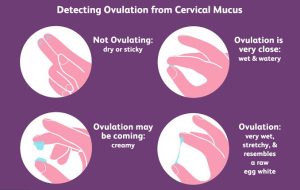By: Amidat Ahmad

Ovulation, a natural process in a woman’s fertility and menstrual cycle, stands as a pivotal moment. Understanding ovulation is not only crucial for those planning to conceive but also for comprehending the complexities of the human body.
WHAT IS OVULATION?
Ovulation is the process where a matured egg is released from the ovary. In the average menstrual cycle, which typically lasts around 28 days, ovulation usually occurs midway, roughly around day 14. However, this can vary from person to person and might not follow a precise calendar pattern for everyone
THE MECHANISM
The menstrual cycle is regulated by a delicate interplay of hormones, primarily estrogen and progesterone. In the first half of the cycle, rising estrogen levels prompt the lining of the uterus (endometrium) to thicken in preparation for a potential pregnancy. Meanwhile, follicle-stimulating hormone (FSH) initiates the development of several ovarian follicles, each housing an immature egg.
Typically, one dominant follicle continues to mature, stimulated by luteinizing hormone (LH). Once it reaches maturity, usually around the middle of the cycle, the ovary releases the egg through the fallopian tube. This process is ovulation.
FERTILITY AND CONCEPTION
Understanding the timing of ovulation is crucial for couples planning to conceive. The fertile window, the days in a menstrual cycle when pregnancy is most likely to occur, includes the days leading up to and the day of ovulation. Sperm can survive in the female reproductive tract for several days, so having intercourse in the days leading up to ovulation increases the chances of fertilization when the egg is released.
SIGNS AND SYMPTOMS
Several physical signs and symptoms can indicate ovulation. These include changes in cervical mucus, a slight increase in basal body temperature, and sometimes mild abdominal discomfort known as mittelschmerz. However, these signs can vary among individuals, and some may not experience noticeable symptoms at all.
IRREGULARITIES AND CONCERNS
While a regular menstrual cycle often indicates regular ovulation, irregularities can occur due to various factors such as stress, hormonal imbalances, underlying medical conditions, or age-related changes. Irregular ovulation can affect fertility and might indicate an underlying issue that needs medical attention, especially for those trying to conceive. Always visit your doctor whenever you notice any changes in your body.
CONCLUSION
Ovulation is a natural and essential part of the reproductive cycle. Understanding its mechanism, signs, and importance can empower individuals in various aspects of their reproductive health journey, whether it’s planning for a family or simply gaining a deeper knowledge of the body’s remarkable processes.
Seeking advice from healthcare professionals for any concerns regarding ovulation or reproductive health is always recommended. With a deeper understanding of ovulation, individuals can understand their reproductive cycles with awareness and confidence.
